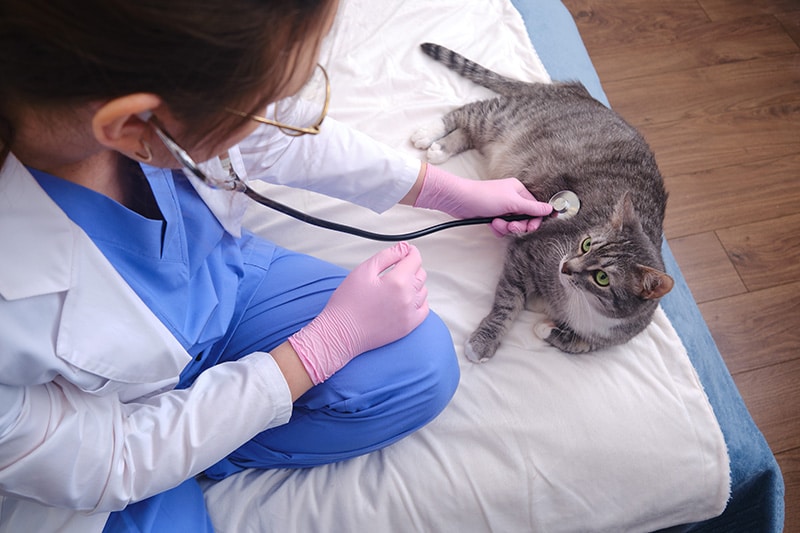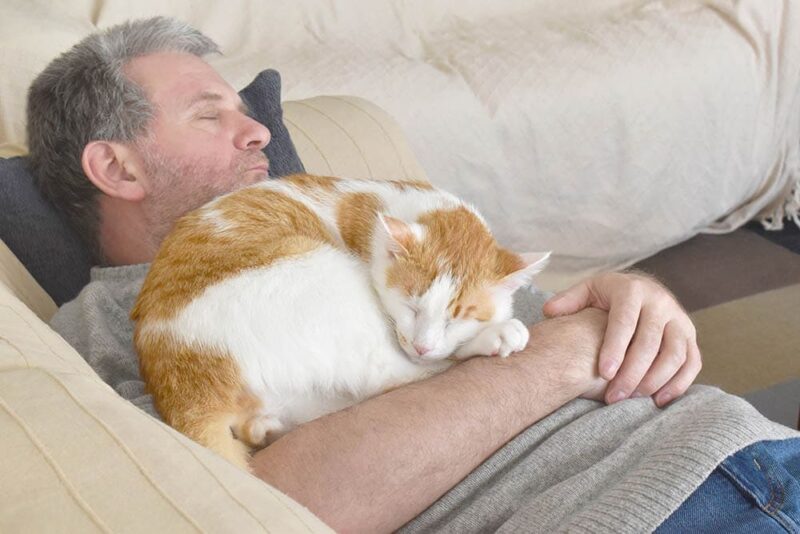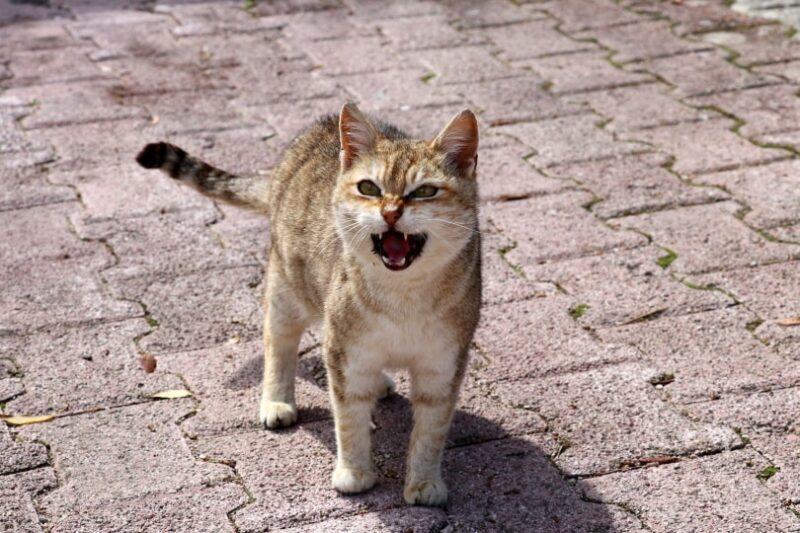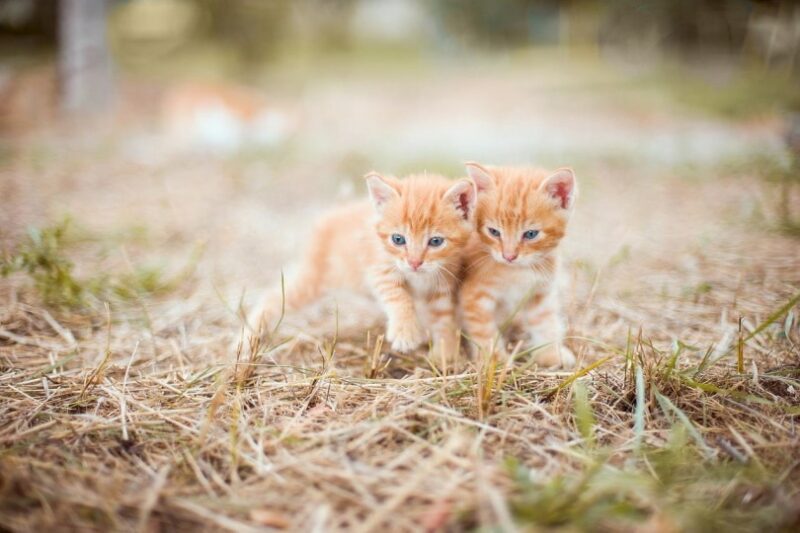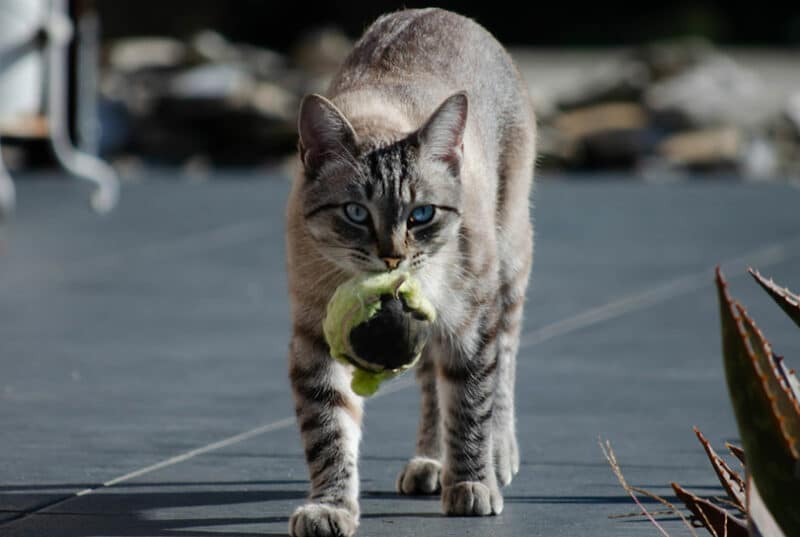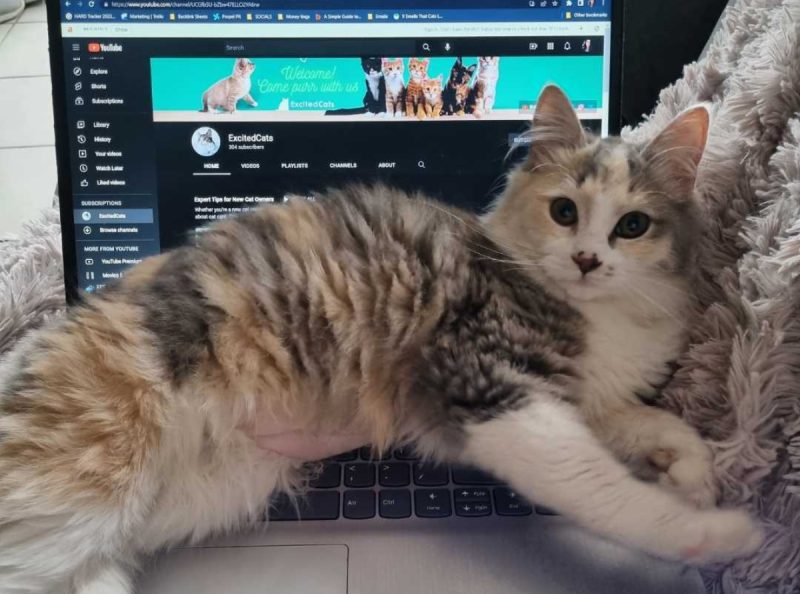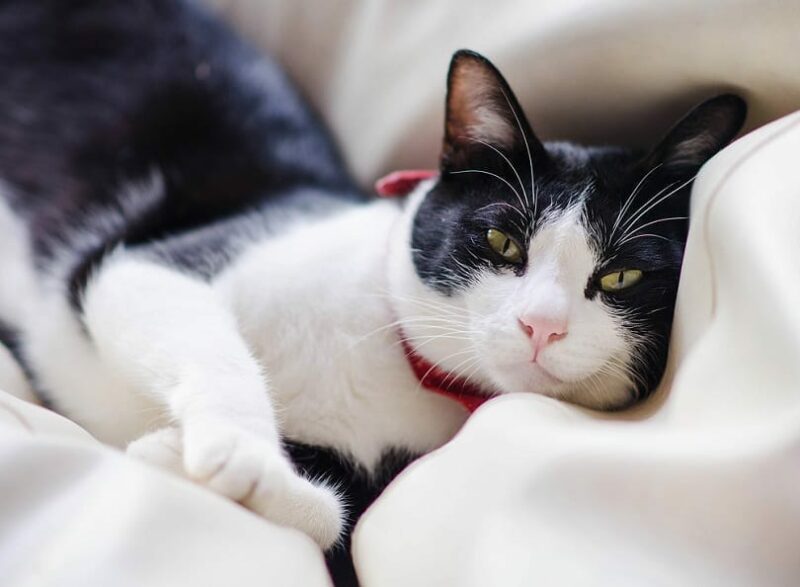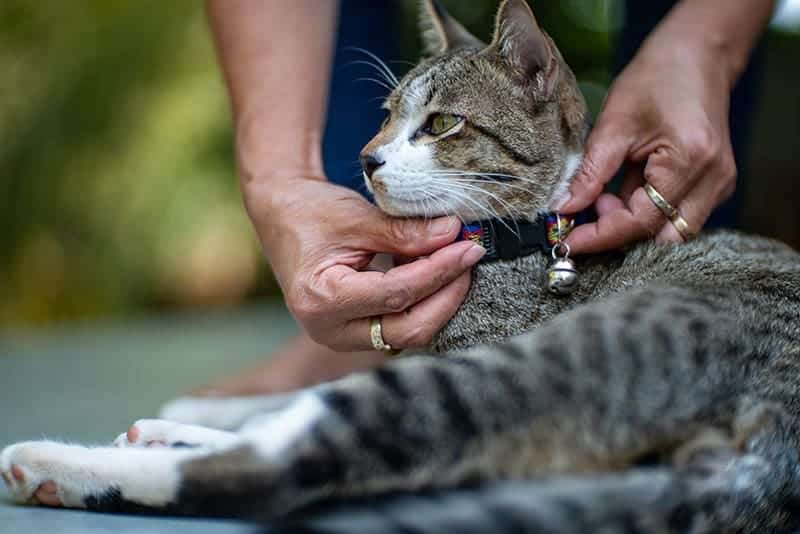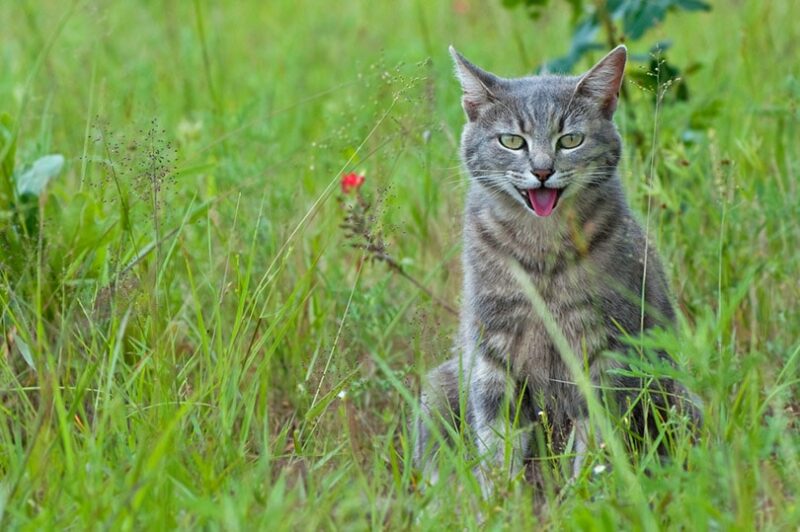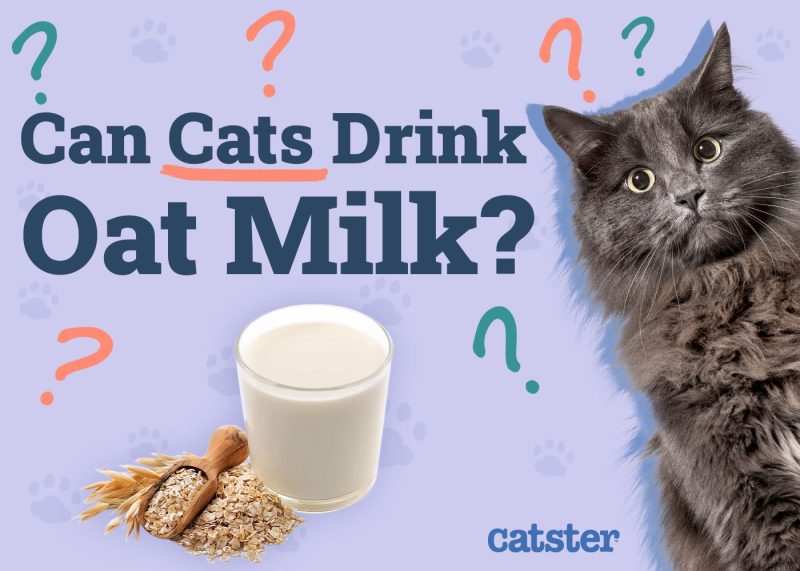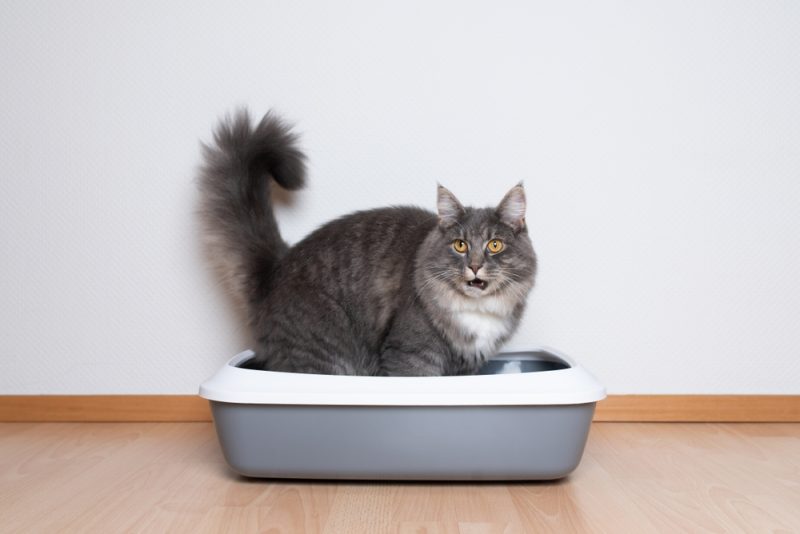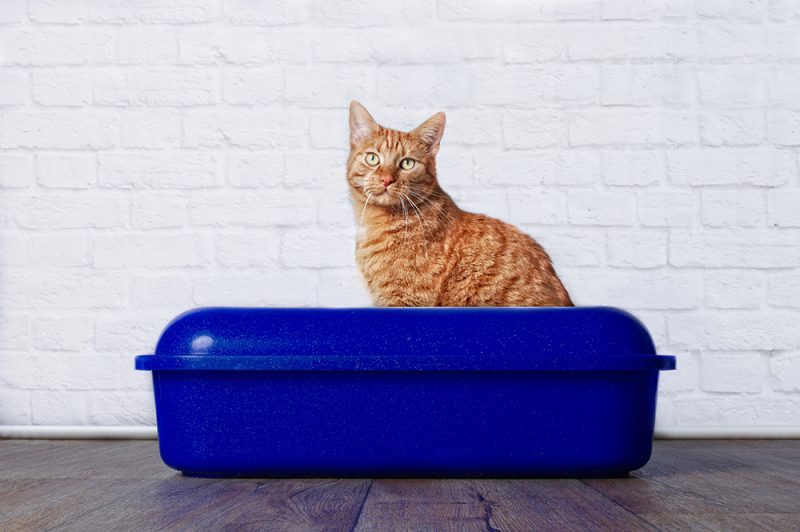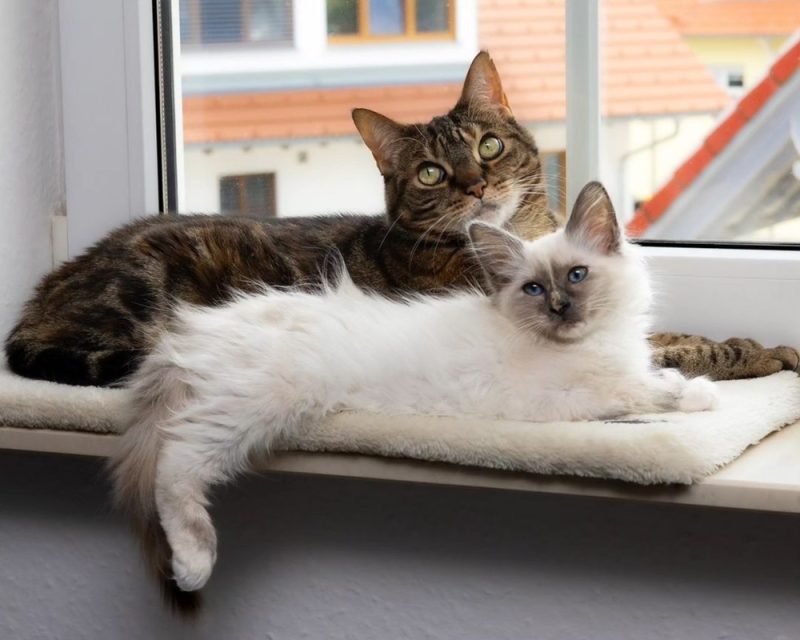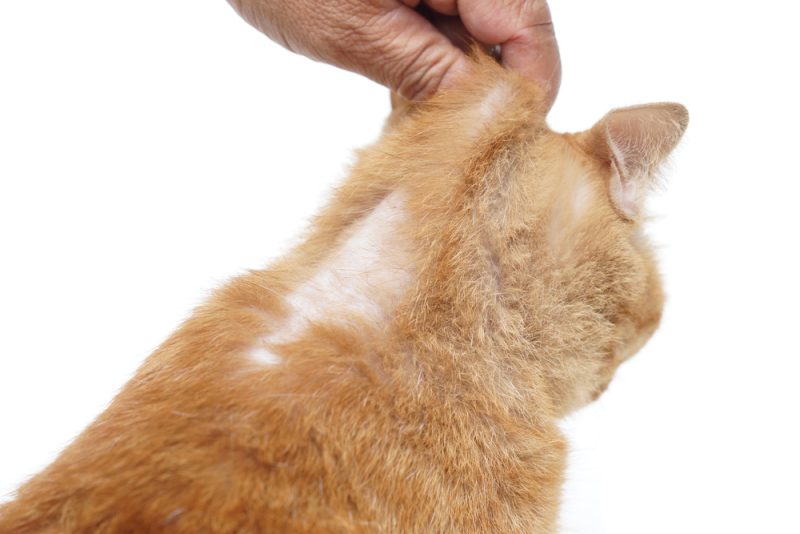In this article
Dreaded by veterinarians and cat parents alike, feline infectious peritonitis (FIP) is a serious disease. There are some promising new treatments on the horizon, but in many cases, FIP is sadly still fatal.
If your cat has been diagnosed with FIP and you have other cats at home, you are likely worried about your other kitties developing this awful disease! The term “infectious” is a bit confusing because, while a virus causes FIP, it is not considered contagious (i.e., it does not spread between cats).
We’ll briefly review what is currently known about FIP and offer some things to consider that may help protect your other cats.

What Is Feline Infectious Peritonitis (FIP)?
Feline infectious peritonitis (FIP) is a viral disease resulting from a mutation of the Feline Enteric Coronavirus (FeCV).
- Most cats have likely been infected with FeCV at some point, often without any sign of illness (some cats develop mild, self-limiting gastrointestinal signs like diarrhea)
- Once a cat has FeCV, the virus stays in their body for the rest of their life. Most cats only shed the virus in their feces (poop) for a few months, but some cats continue to shed the virus throughout their life1
- In less than 10% of infected cats, the virus undergoes a mutation (change), causing an intense inflammatory response (FIP)2
- The “wet” or effusive form (most common): Fluid accumulates in the belly or chest, usually quite rapidly
- The “dry” or non-effusive form: Internal organs are damaged by inflammatory lesions forming throughout the body
We do not fully understand why this mutation happens in some cats with FeCV and not others, but genetic factors and stress (physiologic and psychological) are suspected to play a role.
You might be thinking that the life of an average house cat is anything BUT stressful! However, many things that don’t seem like a big deal to us can be upsetting for our feline friends.
- Physiologic stress: Recent surgery, infection with another virus (e.g., feline immunodeficiency virus, feline leukemia), immunosuppression, etc.
- Psychological stress: Moving, a new baby in the home, conflict between multiple cats in a household, etc.
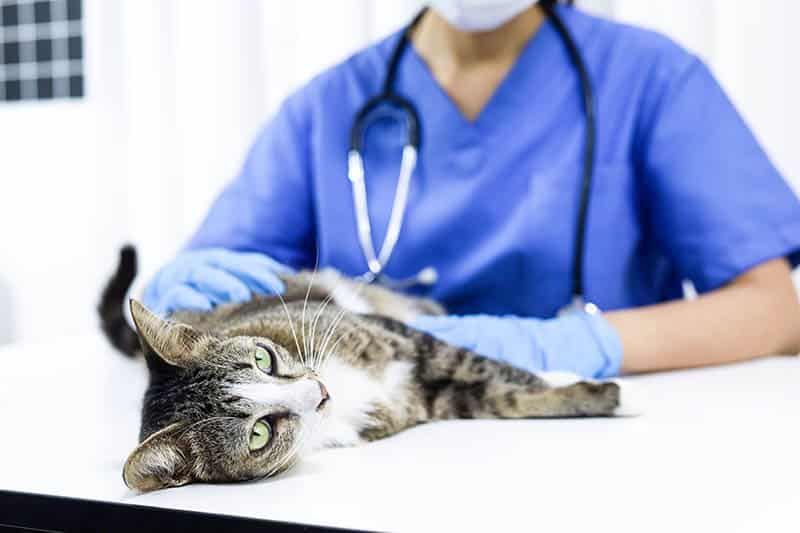
Is Feline Infectious Peritonitis (FIP) Contagious to People?
No. Feline enteric coronavirus (FeCV) is not the same coronavirus that causes COVID-19, and feline infectious peritonitis (FIP) does not affect people.
Can Feline Infectious Peritonitis (FIP) Spread Between Cats?
Feline infectious peritonitis (FIP) is not considered to be a contagious disease. Feline enteric coronavirus (FeCV) spreads easily between cats via contact with infected feces (poop), but the mutated virus that causes FIP does not seem to be shed by affected cats.
FIP is sometimes diagnosed in more than one cat from the same household. However, this is not thought to be due to direct transmission between cats.
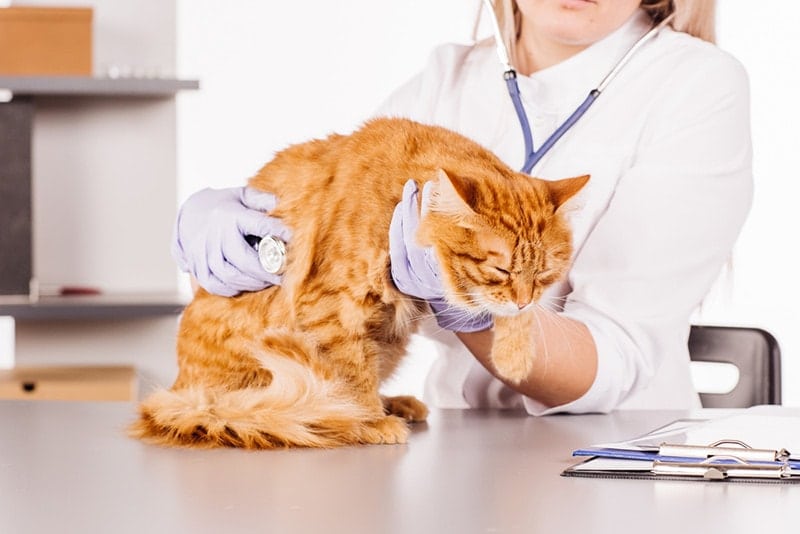
If My Cat Passed Away From FIP, Is It Safe to Bring a New Cat Into My Home?
Fortunately, the feline enteric coronavirus (FeCV) does not survive for long in the environment. In ideal conditions, it has been shown to live for up to 7 weeks, but typically, the virus dies after just a few hours outside of a cat’s body.
To be abundantly cautious, some veterinarians recommend waiting 2 to 3 months after losing a cat to FIP before introducing a new cat into your home.
- Disinfecting hard surfaces with diluted bleach (1 part bleach in 32 parts water)
- Steam-cleaning soft surfaces
- Throwing out old litterboxes and buying new ones
- Your home environment: FIP seems to occur more commonly in multi-cat households, especially if there are frequent additions of new cats or over-crowding.
- Cats younger than 18 months of age appear to be at higher risk of FIP, so you may wish to consider adopting an older kitty.
- Certain cat breeds appear to be at higher risk of developing FIP, including (but not limited to) Abyssinians, Bengals, British Shorthairs, Himalayans, and Ragdolls.
Is There Any Way to Protect My Cat(s) Against Feline Infectious Peritonitis (FIP)?
Currently, the only way to protect a cat completely against feline infectious peritonitis (FIP) is to prevent an infection with feline enteric coronavirus (FeCV). Unfortunately, this is nearly impossible because the virus is so common.
There is a vaccine available for FeCV, but it is not considered to be very effective, and it does not protect against mutation of the virus. The Association of Feline Practitioners (AAFP) does not currently recommend this vaccine for most cats.
If we refer to some of the examples listed above of stressors that can increase the risk of FIP, there are some things you can consider to protect your cat:
- We know cats are addictive, but try to remember that having too many kitties (especially in a small space) increases the likelihood of conflict and stress
- Consider using a pheromone diffuser (e.g., Feliway) to promote a calm home environment for your kitties
- Ensure you have one litterbox per cat, plus at least one extra
- Place litterboxes far away from food and water dishes and clean them daily
- Schedule regular veterinary check-ups. If clinic visits are stressful, ask about options to help your cat feel more relaxed (e.g., house calls, pre-visit medication)
- Stay up-to-date on vaccinations recommended by a vet
Check out the Indoor Pet Initiative for additional tips to help keep your cats happy and healthy!
If you are concerned or have questions about your cat’s health, you can also speak to a vet from the comfort of your own home to help make a plan. They can determine when an in-clinic vet visit should be made.
If you need to speak with a vet but can't get to one, head over to PangoVet. It's an online service where you can talk to a vet online and get the advice you need for your pet — all at an affordable price!


Conclusion
Feline infectious peritonitis (FIP) is still a scary diagnosis for a cat. Fortunately, it does not seem to spread between kitties, but we still have much to learn about why certain individuals are affected, how to treat them, and whether the disease can be prevented.
Featured Image Credit: Zhuravlev Andrey, Shutterstock

